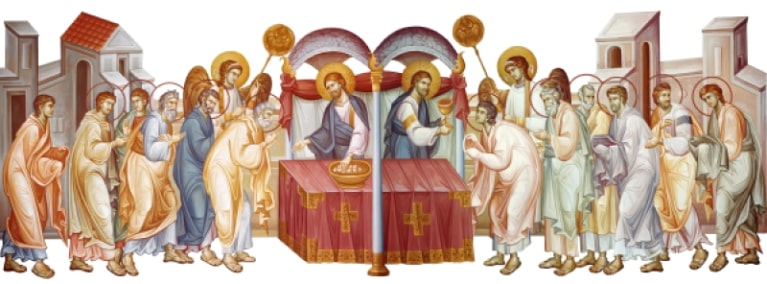
This question arose in the context of the spiritual evenings that we started, in which we talk about Christ the Savior as the fulfillment of the Law and the Prophets.
First, Saint John the Evangelist says: “[The Word] was the true Light which gives light to every man coming into the world. He was in the world, and the world was made through Him, and the world did not know Him. He came to His own, and His own did not receive Him” (1.9–11).
Then the Savior Himself said to Nicodemus:
“The Light has come into the world, and men loved darkness rather than the Light, because their deeds were evil” (3.19).
The end of the verse provides a possible answer. Knowing or recognizing God has to do with our deeds, with our hearts; with whether the heart is pure or not. So, we are aided not only by the knowledge from the Prophets that Messiah is to come, but also by the heart. Chapter 6, also from St. John, is eloquent in this respect—here the Savior announces the Holy Eucharist, the core of the Holy Liturgy, and declares:
“I am the living bread which came down from heaven. If anyone eats of this bread, he will live forever; and the bread that I shall give is My flesh, which I shall give for the life of the world.” The Jews therefore quarreled among themselves, saying, “How can this Man give us His flesh to eat?” Then Jesus said to them, “Most assuredly, I say to you, unless you eat the flesh of the Son of Man and drink His blood, you have no life in you” (51–53).
We Christians, after 2,000 years, got used to these Mysteries of our Faith. But then it all seemed incomprehensible. It was mind-blowing. As a result, even some of the disciples were unable to grasp it. “Therefore many of his disciples, when they heard this, said, ‘This is a hard saying; who can understand it?” (60). “From that time many of His disciples went back and walked with Him no more” (66). So Jesus asked the twelve if they also wanted to go away. “But Simon Peter answered him, ‘Lord, to whom shall we go? You have the words of eternal life” (68). Simon’s words are words of the heart and not of the mind. Because [the disciples] had simple, pure hearts, they felt God. “We do not understand. What You said is beyond reason, but we feel You have the words of eternal life”.
So receiving Christ is more a matter of the heart, especially of the pure heart, as He Himself said: “Blessed are the pure in heart, for they shall see God” (Matthew 5.8). Without purity of heart, one cannot recognize Him.
Herein lies the answer: “He came to His own, and His own did not receive Him” (John 1.11). “For their deeds were evil” (John 3.19). They saw astonishing miracles, but their heart was not right. The rabbis knew that the Messiah ought to come, it was a time of extraordinary expectation, they had the writings of the prophets, but their hearts were of no help. And Salvation was worked through the Mother of God, through Saint John the Baptist and all the righteous, who possessed not only the mental knowledge of the Scriptures but their fulfillment as well, along with the purity of heart.
For in following Him, in our way toward God, there will be a moment that transcends the rational power of understanding, a moment that crucifies the mind, because He is God, and He overwhelms us, He is beyond what we can imagine. Then the mind stops and only the heart can follow Him.
Thus, the mind only offers direction, but the power to follow Him comes from the heart.
Only the whole man, with his heart and mind united as in our philokalic tradition, can recognize and follow God to the end. The mind united with the heart.
Until then, the heart should at least be contrite and humble, full of repentance. This heart also can recognize and follow God. Like the sinners from the Gospel.
We need a lot of humility in order to approach God!
